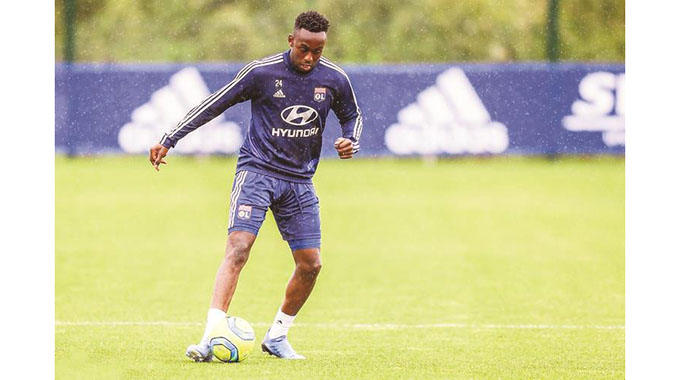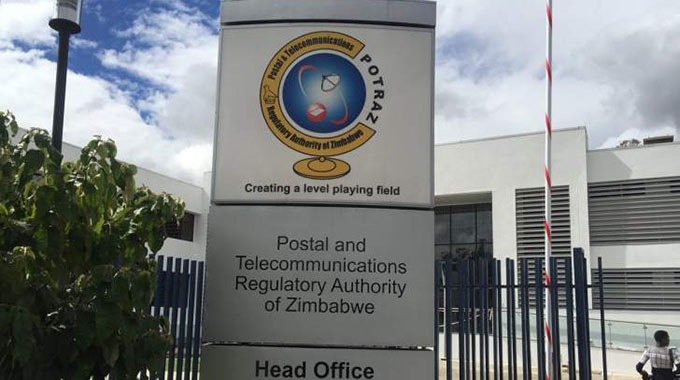Editorial Comment: Nation cannot sacrifice lives for football

FOUR of the Big Five football leagues of the world — the English Premiership, Spanish La Liga, German Bundesliga and the Italian Serie A — are back in action.
The fifth one, the French Ligue 1, might have ended its season prematurely, but health and political experts there have given the green light for its clubs to resume training sessions.
That’s why Zimbabwe international footballer, Tino Kadewere, featured in a friendly match for his new French club, Olympique Lyon, where he marked his first game, in their colours, with a four-goal salvo on Wednesday.
And, that’s why the French giants will play another friendly match today. The return of football has brought cheer to millions of fans of the game, across the world, though, without fans at the stadiums, there is a different ring to what we have been seeing.
Fans provide the atmosphere that gives football its soul, their sights and sounds contribute to give the product a fine touch and, without them, it has been clear that something, very important, is missing.
However, the clubs in England, Spain, Germany and Italy, have been under pressure, especially from broadcasters who provide their leagues with the bulk of its income, to complete their seasons.
Failure to do that, warned the broadcasters, could have resulted in the leagues losing billions of dollars, in claims, and this — in turn — would have deprived them of the funds they inject into the clubs to enable them to pay outrageous salaries to their players.
However, the health of those who are taking part, has been given a priority and the matches are being held under very strict guidelines meant to ensure that the stadiums don’t become breeding grounds for the spreading of the deadly Covid-19 outbreak.
That’s why all the players, officials and journalists have to undergo extensive Covid-19 tests, which are being carried out regularly, to ensure everyone will be safe during the matches. But, that comes with a huge cost, but for the Big Five leagues in Europe, which generate tens of billions of dollars, the expenditure towards those tests is a very insignificant figure.
The same cannot be said about the football clubs in Africa.
Many of them struggle, even in the best of times, just to keep themselves afloat as they are forced, now and again, to scramble for funds just to pay their players.
The South African Premiership, where most foreign-based Zimbabwean footballers ply their trade, is the richest top-flight football league on the continent.
But, Super Diski, as the league is affectionately called by its followers, hasn’t been immune to challenges posed by Covid-19.
With South Africa, as of yesterday, struggling with over 168 000 Covid-19 infections, the return of football in that country has been a tricky subject.
Though the authorities have granted clubs the nod to start training sessions, under strict guidelines, we haven’t seen many of the teams rushing back to the training ground.
Only Cape Town City returned to training this week, while others are trying to find ways of how they can negotiate the challenges without putting the lives of their players and officials at risk.
The economic impact of Covid-19, on the league itself, has already been felt with two of the country’s leading banks, ABSA and Bidvest, ending their association with football.
Against this grim background, how is it possible that domestic football can be given the green light, by the authorities, to get underway this year?
The local football season was initially supposed to start in March, but authorities rightly halted all sporting activities to ensure our stadiums don’t become fertile grounds for the spread of Covid-19.
Today, ZIFA leaders meet again in Harare, to hear from their health experts, whether it’s safe for football to start in this country.
Of course, whatever their experts tell them would still need to be endorsed by the Government, who are the overall authority in such matters, and have already classified football as a high-risk sporting discipline.
As we reported yesterday, the prospects of domestic football being played this year keep fading by the day after the game’s medical committee gave a grim report on the chances of the game getting underway.
Led by renowned medical doctor, Edward Chagonda, the medical committee delivered a report which emphasised on strict adherence to the health guidelines, as proposed by Government, FIFA, CAF and World Health Organisation.
Chagonda said his committee recommended PCR tests, which cost US$65, per test kit and this would mean a PSL club, with 30 players and about 10 officials, would need roughly US$10 400 a minimum, every week, for Covid-19 tests only.
It’s the kind of expenditure which the local clubs just cannot afford.
While we would rather see domestic football returning to our stadia because it’s a game which cheers the spirits of our nation and gives the people of this country something to smile about, when their local clubs are doing well, this can’t be done at the expense of the health of the players and their officials.
It’s better for the entire season to be scrapped, even though that comes with complications as players and their coaches would have spent the year being paid even when they have not fulfilled their contractual duties, than for us to lose lives, and help spread Covid-19, through football.
Football can be played on another day, week or month, but no life can be replaced, once it is lost and, as we saw at the burial of the late Dynamos star, Biggie Zuze, in Bindura, social distancing isn’t something fans really believe in.
We also saw it with those celebrations in Liverpool, but in our case, prevention is better than having thousands of our people dying for the sake of football.











Comments